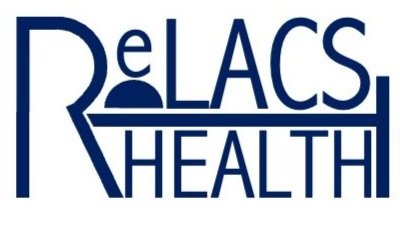A ReLACSing Blog #11: Open for Business
The seed of the idea was planted in my brain in late 2019. I was attending a full day CME course for the buprenorphine waiver for medication-assisted treatment of opiate use disorder. Why would a sleep neurologist who is unlikely to treat a patient with opiate use disorder, attend a course on buprenorphine? Well, buprenorphine has become increasingly popular for many conditions including opiate use disorder, chronic pain, patients with tolerance or side effects to full agonist opiate medications, but also restless legs syndrome (RLS), one of my specialty interests in sleep medicine. A future blog, a lot more discussion, and hopefully a future publication will be dedicated to this drug, but I was there to learn as much as I could about this medication. Between lectures, I was chatting with the physician sitting next to me who was in primary care, and it turned out we were both passionate about lifestyle modification, nutrition, and longevity. (We also shared our shared concerns about the insurance-based fee-for-service healthcare system that neglects most of these topics, as I have detailed in Blogs #2 and #3). It turns out that she had mostly left the fee-for-service insurance world and had started a direct primary care (DPC) practice and was doing lifestyle medicine as well. At that point, I had heard of concierge medicine, which has some similarities, but was not aware of direct-payment healthcare outside of insurance. She connected me with a practice consultant, and I initially pondered whether such a practice could work in sleep medicine, which is a subspecialty, not a primary care field. Well, needless to say, as I am opening a direct specialty care practice tomorrow and seeing the first patient tomorrow (!), you can probably guess what the ultimate answer to the pondering is now. I explained why direct care is potentially so important for patients with sleep disorders in A ReLACSing Blog #8. Whether the practice would work however, only time will tell. I will certainly let you know, when I find out soon enough.
At that time, I batted around the idea of direct care in my head for a while, but as 2020 rolled around, I decided to look for a new academic practice. I thought that maybe some of the challenges of seeing too many patients, lacking follow up slots for 6 months and having to overbook, spending too much time in the chart, handling an overwhelming number of portal messages and phone calls with a lack of clinical support, and being at an academic center with very little time for teaching or research, were just challenges with the center itself. I could find another, and it would be better. I took another academic position. Literally a few days later, the pandemic hit and everything was shut down. It may have been a blessing not to have started a solo practice at that moment, as I am not sure how successful it would have been with no guaranteed salary or referral base when society was locked down for months. Regardless, I took that new job, with new prospects, and a steady salary, and only found things to be more or less the same as at the previous institution. In 2021, as I thought about moving on to yet another sleep center, poking around at open positions elsewhere, I began to think that it was not the center but the system. Essentially, the system itself was in conflict with my practice style, and I either adapt to the insurance-based fee-for service system or leave it. As I learned more and more about direct care, it became clear that this was the ideal fit for me. It was time to start my own practice.
There are very few direct specialty care practices right now, but it seems that these are growing in number quickly. There may also be more fingers on your hand than the number of direct care sleep clinics, and none to my knowledge that are dedicated to challenging RLS care. I hope to show “proof of concept,” the research term that aptly describes the situation, and hopefully many more sleep clinicians will also make the jump as well.
ReLACS Health is open for business this week. Even if you are not a prospective patient, feel free to check out the full website which is now up, and you can entertain yourself even more with some of articles and other media I have posted on various sleep topics. If you are a prospective patient, you may even be able to schedule an appointment with me (not until July 1 for those with Medicare, however). The next blog will be in almost two weeks and I will cover what I learned at Sleep 2022 (the annual meeting of the Associated Professional Sleep Societies). See you then.
-Andy Berkowski, MD, owner of ReLACS Health, direct specialty care sleep medicine
PS: On this Memorial Day, let us reflect and pray in thanksgiving for the ultimate sacrifices of our service men and women who have gone before us.


